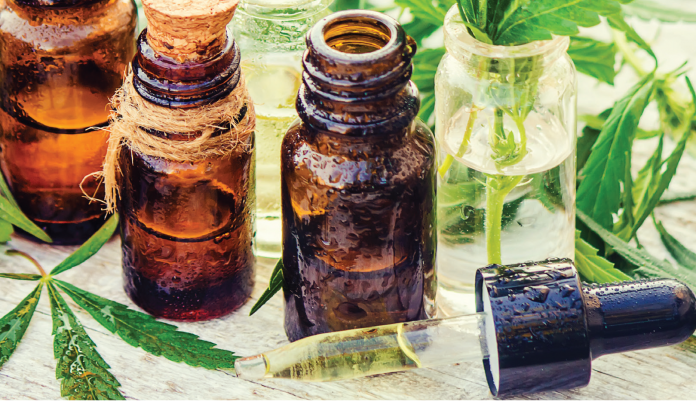HILLS, SPILLS & PILLS – MEDICAL CANNABIS CAN REDUCE OPIOD ADDICTION
There’s an old adage offered by many orthopedic surgeons: “If you haven’t torn your ACL, you haven’t been skiing long enough.”
A quick glance at bare knees in Park City suggests there’s a lot of truth in this tongue-in-cheek prediction—most of us look like we’ve been in a knife fight with a toddler. This is a town where scars are worn as a badge of honor and falling off a mountain is a right of passage.
And while many spills on (or off) the hill require little more than rest and an aspirin, other crashes result in a trip to the operating room, and for some patients, going under the knife to repair an injury can leave them in an unexpected state of disrepair.
“Chronic postoperative pain is an unlikely but potential outcome from just about any surgery,” said Dr. Andy Talbott, a pain management physician with Southwest Spine & Pain Center. “For millions of patients every year, chronic pain, that is pain that lasts for several month or years, is an unplanned outcome of surgery.”
 Dr. Talbott is quick to point out that chronic pain can also result from an injury left untreated. “A lot of athletes decline evaluation and treatment after a crash, assuming time will heal it. Years later, they have a daily, painful reminder of an injury that never healed quite right.”
Dr. Talbott is quick to point out that chronic pain can also result from an injury left untreated. “A lot of athletes decline evaluation and treatment after a crash, assuming time will heal it. Years later, they have a daily, painful reminder of an injury that never healed quite right.”
In the past, chronic pain was treated with a prescription pain medication, namely opioids, a solution we now know has deadly consequences. Every day, more than 130 Americans die from an opioid overdose, and misuse of these drugs costs taxpayers an estimated $78.5 billion each year.
“Unfortunately, many people suff ering from long-term pain have been left in limbo,” Dr. Talbott acknowledged. “They must choose between living in pain or risking addiction.”
That’s one of the reasons Dr. Talbott lobbied in favor of Proposition 2, a ballot initiative to legalize the medical use of cannabis for individuals with qualifying medical illnesses. Prop 2 went before Utah voters in November of 2018, and more of them checked “yes” on their ballots than “no,” approving the use of medical cannabis in the state. But only a few weeks aft er election day, Governor Gary Hebert called a special session and state lawmakers voted to reverse the will of the people. Lawsuits were fi led and in September of 2019, Senate Bill 1002, known as a substitution bill, was passed by state lawmakers and later signed into law by the governor. But Dr. Talbott says this “compromise” bill still doesn’t go far enough.
“Th is bill limits the number of dispensaries to 14 across the entire state, which restricts access for those in rural areas and will likely increase the cost of the product. Proposition 2 provided for over 40 dispensaries, including one in every county,” he said.
In addition, Dr. Talbott worries there will be further delay as state legislators continue to tweak the bill. “The reality is, voters approved medical cannabis over a year ago. Many of my patients can’t wait another year for access, and I’m not confident the state of Utah will have dispensaries up and running anytime soon.”
Dr. Talbott’s concern is well founded. In most states, setting up medical cannabis distribution has not been a quick process. State lawmakers though say they’re committed to making sure the program is up and running by the March 1st deadline.
For now, it is quite literally a painful wait for thousands of Utah residents.
by Amy Roberts











